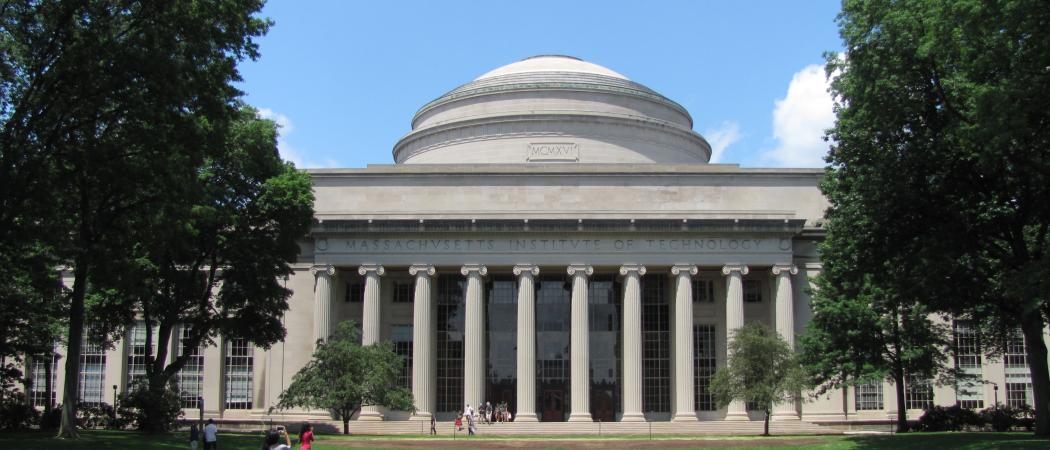Leading US university ends 11-year deal with Moscow-area innovation hub Skolkovo, fueling international academic debate over continued collaboration with Russian science

Photo: John Phelan, Wikimedia
An academic movement to sever research ties with Russia gathered steam over the weekend, as leading US university MIT announced it is ending its 11-year partnership with Russia’s tech hub, Skolkovo.
“This step is a rejection of the actions of the Russian government in Ukraine,” according to a statement from Massachusetts Institute of Technology. It said it notified its Russian partner, the Skolkovo Institute of Science and Technology or Skoltech, that it is “exercising its right to terminate.”
The MIT move is the highest-profile action yet in a global academic debate about whether and how the West should cut educational and scientific ties with Russia. The German academic world, prodded by the Berlin government, was first last week in suspending ties; and on 25 February a leading German member of the European Parliament called on the European Union to exclude Russian researchers from the EU’s flagship R&D programme, Horizon Europe.
Over the weekend, from the Netherlands to Canada, university faculties and research administrators were debating public and privately what to do. The usual academic reflex is to view scientific exchange as a vital human activity that shouldn’t be mixed with politics. But the brutality of the Russian invasion has challenged that view.
“MIT’s move highlights how Putin’s decision to instigate a new war on the European continent risks plunging Russian science (along with everything else) into deep isolation,” Tweeted Jo Johnson, former UK universities minister and brother of the Prime Minister. Likewise, a Brown University international studies professor, Ashutosh Varshney, Tweeted that “my guess is that more such announcements from other US institutions will follow.”
Global partners for Russia
International collaboration has become increasingly important to Russian science – with 24% of published Russian research papers from 2017 to 2019 written with foreign collaborators, according to UNESCO. Of them, US and German researchers are by far the biggest partners, with France, Britain and China distant runners-up. The publication record suggests Russian science is strongest in materials, artificial intelligence and energy – and its technical workforce is still the fourth largest in the world. But that has been shrinking fast, along with state science budgets, since the 2014 Crimean war.
The MIT foray into Russia began in 2011, at a time it and other Western universities were trying out varied schemes for satellite campuses and international ventures. Since then, many of those experiments have failed or got downgraded – often because they ran into financial or censorship problems in places like the United Arab Emirates, Saudi Arabia or Malaysia.
Skolkovo is a big academic and research complex in Moscow’s western suburbs that was a pet project of then-President Dmitri Medvedev to build what he called a Silicon Valley in Russia. It was funded mostly by the Russian government, with support from a leading Russian oligarch, Viktor Vekselberg. A $3 billion investment was planned, and about 200 Western tech companies were invited to set up offices there. In part due to Edward Crawley, a famed MIT rocket scientist with extensive experience of US-Russian space cooperation after the collapse of the Soviet Union, MIT became Skolkovo’s “principal” Western academic partner.
At the start in 2011, MIT faculty were instrumental in helping plan the high-tech courses and training programmes at Skoltech. MIT accepted Russian students to study in Cambridge, with about 100 hosted in the first few years. About 24 MIT instructors taught at Skoltech in 2014-15, in six master’s or PhD programmes; and 33 regular MIT courses were adapted and transferred to Russia. And a range of joint research projects got underway in biomedicine, energy, information technology, product design and space sciences.
The FBI takes note
But then things started to get rocky. The Russian government didn’t deliver on all its funding promises. The latest, 2020 annual report of Skoltech lists net assets of 5.5 billion rubles, at the time equivalent to $71.5 million, and income of 8.2 billion rubles – 85% of it from the Russian government and the foundation.
Then the US government began taking interest. In 2014, the Federal Bureau of Investigation publicly warned the Boston research community of “the possible perils of entering into joint partnerships” with Russian venture firms backed by the Skolkovo Foundation. In a statement published in the Boston Business Journal, two FBI agents wrote that the “true motives” of the Russian partners “is to gain access to classified, sensitive and emerging technology.” As an example, it cited a Russian defence contractor setting up a Skolkovo R&D facility, at the same time that it was developing new all-terrain vehicles for Russian strategic missile forces.
MIT began dialing down the partnership shortly after – but it has been continuing since then on a reduced scale.
The decision to end the relationship was announced to MIT staff on 25 February. In a brief statement, the university said it did so “with deep regret because of our great respect for the Russian people and our profound appreciation for the contributions of the many extraordinary Russian colleagues we have worked with.”





 A unique international forum for public research organisations and companies to connect their external engagement with strategic interests around their R&D system.
A unique international forum for public research organisations and companies to connect their external engagement with strategic interests around their R&D system.